The
old saying “one man’s trash is another man’s treasure” holds true to Amal
Madanat, taking on the old saying and turning it into her life’s purpose of
transforming what may have been trash and giving it new life. Madanat, a
retired government employee and environmental activist who resides in the 7th circle has transformed her building’s garage into a recycling hub for all the
residents.
اضافة اعلان
Promoting
herself as a zero-waste lifestyle advocate and environmental activist, she gave
us a tour of this recycling friendly garage. Inside, she has placed
multiple-colored barrels with tags on them, one saying oil waste, another
labeled cartons and papers, and a huge box for glass.
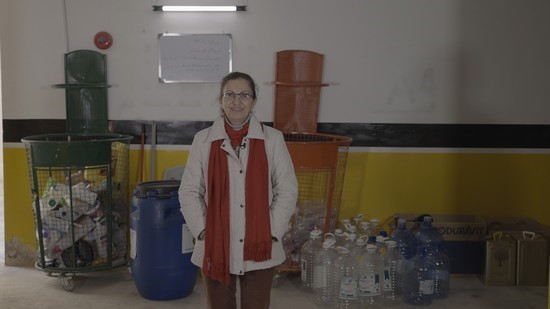 A
zero-waste life is within reach for everyone
A
zero-waste life is within reach for everyone
She
strives to create a living example of how one can lead a zero-waste lifestyle
and inspire / encourage others to participate in waste sorting. Through her
simple actions, she leads by example, showing her neighbors and other neighbors
that a zero-waste life is within reach for everyone.
“In
the beginning, it was a bit hard to get them engaged, but after a while and
with the help of the building guard, almost all the neighbors started to
voluntarily sort their waste” says Amal, 60 years old in a report that was made
from Amman for BBC Arabic.
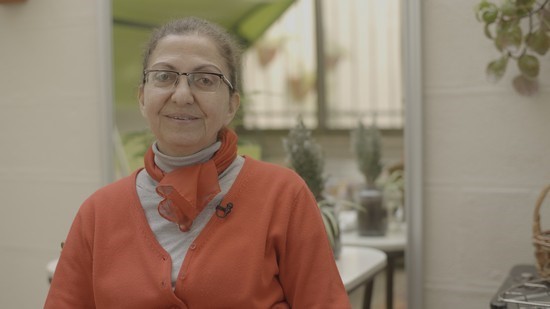 Emerged
to fill the void
Emerged
to fill the void
In
the absence of a government-led nationwide recycling program, several
companies, non-profit initiatives, and individuals have emerged to fill the
void.
For
glass waste, Madanat collaborates with Khaled Shorman, who owns an eco-village
where he builds mud houses and incorporates recycled glass into his designs. He
personally collects the glass from various locations and visits her garage
every two weeks to pick up the accumulated glass.
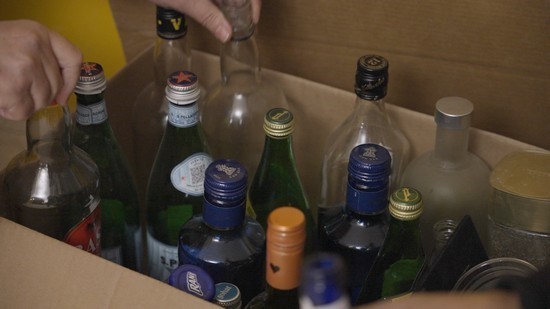 An
old method takes new life
An
old method takes new life
Shorman
says “Our project is based on the idea of natural building, which means
building with materials found in your surroundings. Back in Jordan, people used
to build their houses with stone and mud. Today, I build with stone, mud, and
glass because glass is an excellent material for construction, and it helps in
reducing the waste instead of throwing it away.”
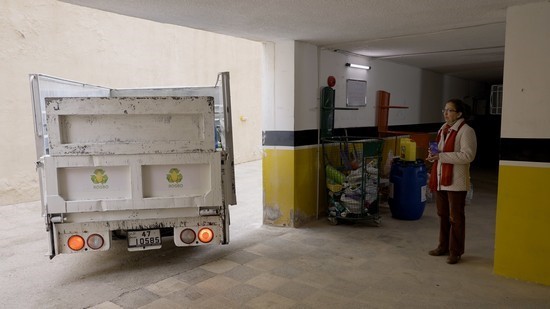 Oil
waste equals money
Oil
waste equals money
For
the oil waste, all the building residents, who now seem to be excited and
cooperative, pour their oil waste into one barrel. Once the barrel is full,
Madanat contacts a company that buys oil waste. The company weighs the oil
waste and pays for it.
She
explains that this extra income has provided the building's guard with
additional earnings, as he has now taken the waste management tasks as an extra
source of income for him.
Amal
says: “Only organic waste is a bit hard to gather collectively. She continues:
“I manage my own organic waste in my house by collecting food scraps in a
compost bin, which I later give to Walid Al-Nabulsi.” Nabulsi owns “Organica”
an initiative that transforms food waste into organic compost, he and Amal have
been trading waste for organic fertilizer for years.
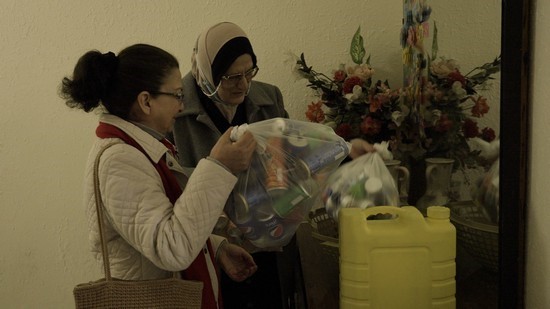 An
app that changed the game
An
app that changed the game
Mdanat
explains, that she always explores different ways to improve her zero waste
efforts, and one day she came across an app that she thought back then that it
would change the game. “Green Jo” is a Jordanian startup found by Osama
Al-Ghwiri the concept relays on the idea of buying sorted waste from people to
recycle it later.
They
have a mobile application that provide a collection service of the sorted
plastic, paper, cardboard, and metal waste, allowing people to earn money based
on the amount they recycle. She started working with them to dispose her
building waste made from the aforementioned materials.
In
an interview with engineer Ghwiri, founder of “Green Jo,” he mentioned that
their app was created to empower individuals like Madanat and also the random
garbage collectors in the streets who live off selling garbage.
An
app that saves them time
The
app saves them time by selling their sorted waste on their behalf. “Everyone
now has a phone and yes, many garbage collectors have regularly used our mobile
application” Al-Ghwiri said.
However,
there are some limitations
The
process of collecting garbage from the streets is not legal because, according
to officials, the moment garbage is dumped in the street containers, it becomes
the municipality's property, and the municipality is the only entity
responsible for dealing with it.
The
executive director of solid waste treatment & management in the greater
Amman Municipality, Engineer Firas Obaidat, says that the municipality is
working to put a framework in place for these people and legalize their job but
under a clear umbrella.
People
like Madanat and Ghwiri are in favor of these legalizations as long as it will
keep providing a source of income for an extended group of underprivileged
individuals and who contributes to the collective recycling efforts.
Although
Green Jo was promising in making a real impact on waste management, the whole
startup seems to be facing some challenges at the moment. They no longer
operate. We tried to contact them but we did not get any response.
Madanat
also could not continue her activities with schools after spending the past
eight years running a variety of school activities, encouraging children to
rethink harmful social attitudes towards garbage for the lack of funding and
support.
Currently,
she is only active when someone calls her to give a workshop or through her
Facebook page called 'Towards Zero Waste,' where she publishes the practices
that she would love people to start doing, and educates people about the
importance of recycling and the value of items that they merely consider waste.
Low
public awarenessShe
thinks that despite all of her personal efforts and those of people like her,
nothing will really change because of the general low public awareness towards
the topic and the government's lateness in taking action.
Meanwhile,
Obaidat acknowledges the remarkable efforts of individuals like Madanat.
However, he agrees that without implementing stringent laws, these efforts may
not yield the desired impact. He declared that by the year 2024, a national
strategy will be implemented and the municipality plans to introduce
regulations that mandate sorted waste separation from the source.
Only
7 percent is actually recycled
At
the moment, only 7 percent is recycled from the 3 million tonnes of municipal
waste produced annually in Jordan. However, people like Madanat, who advocate
for a zero-waste lifestyle, believe that living a zero-waste lifestyle extends
beyond just recycling.
According
to her, it's not only recycling that we should focus on; she believes that we
should try our best to reduce waste from the start, even with items that are
eventually destined for recycling. It is to reach a point where you as an
individual produce the lowest possible -almost zero- waste.
Read more Lifestyle
Jordan News



